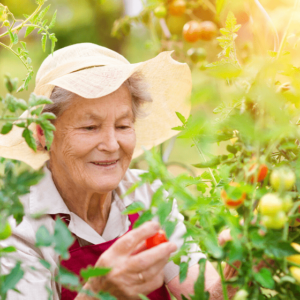April is Parkinson’s Awareness Month
Parkinson’s is an incurable, progressive neurological disease that primarily affects movement, but it can also affect cognition. Because of its progression, it can be difficult to care for someone with the disease. We have curated some helpful tips to support family caregivers who are caring for a loved one living with Parkinson’s.
Understand the disease and the person living with Parkinson’s. There are special challenges when caring for someone with Parkinson’s because every day can present something new.
- The incidence and severity of Parkinson’s disease symptoms vary from day to day and even from one time of day to another. It takes skill and patience to know when to assist with a task and when to simply allow the person more time to do the task independently.
- It takes time and ongoing education to learn the many symptoms of Parkinson’s and the medication regimens that offer the most symptom relief and improve quality of life.
- Caregivers must closely observe the person with Parkinson’s overtime to detect and respond to subtle changes in motor function and mood.
- Your loved one might not be aware of his or her changing abilities. Understanding of health risks, such as falling, may not have “caught up” to their actual level of risk and impairment.
Continue to build your strength. It is important that caregivers stay fit. A caregiver could be required to provide physical care to someone with advanced Parkinson’s to help with re-positioning, walking or bathing. This responsibility can be difficult, exhausting, and even cause physical injury.
Streamline your processes when it comes to personal care. If you are providing bathing assistance:
- Use a shower chair, hand-held hose and a long-handled sponge or scrubbing brush.
- Use sponges with soap inside or a soft soap applicator instead of bar soap.
- Use lukewarm water, as very hot water can cause fatigue.
- Sew straps on towels to make them easier to hold while drying.
- Put a non-skid rug on the floor outside the tub to prevent slipping.
Dressing someone living with Parkinson’s can be time and labor-intensive. If you are providing dressing assistance:
- Allow plenty of time in the morning as rushing may only increase stress and worsen Parkinson’s symptoms.
- If possible, wait until medications have begun to work before attempting to dress someone with Parkinson’s.
- Consider replacing buttons or zippers with Velcro fasteners. Loose-fitting clothing is often easier to get on and off.
Focus on proper nutrition. Caregivers and the loved ones in their care must eat healthy. There is no one recommended way to eat with Parkinson’s disease, but a balanced diet full of fruits and vegetables promotes health and well-being for everyone. Be aware of these potential difficulties:
- Swallowing problems may occur, so diet changes may be required. Consider softening food.
- Constipation can occur. More fluids and more fiber can help maintain regularity.
- Medications that treat Parkinson’s disease can cause dehydration. Not only can dehydration result in fatigue, but over time, it can also lead to confusion, balance issues, weakness and kidney problems.
Encourage regular mobility. Falls are common and disabling in people with Parkinson’s disease, affecting up to 60% of those who live at home. Try to include some form of easy-to-manage physical activity each day, such as walking, light housekeeping, cooking or gardening. When mobility and balance become an issue, add canes and walkers to help your loved one get around and maintain some independence.
Take care of yourself. Caregivers tend to focus on their loved one and their needs but do not find time each day for themselves. Be realistic about your experience, needs, and limits. Make sure you’re building a support network, recognizing stressors that are impacting your health, and asking for help from family members or local professionals when necessary.
Don’t minimize the need for respite care. Caregiving is a demanding job, and if you’re caring for someone at the expense of taking care of yourself, it could lead to unintended consequences. Not paying attention to your personal happiness and fulfillment can create resentment over time as you continue to put others’ priorities ahead of your own.
During this time, please know that we are fully operational and our caregivers are available to help. The safety and well-being of our caregivers, clients and community have always been our top priority. That’s why we have taken extra care to provide our team with the most up-to-date safety information and training to keep everyone protected and healthy during this uncertain time.
If you need our help, find a location near you.
SOURCES
Parkinson’s Foundation: www.parkinson.org
WebMD: www.webmd.com
Michael J Fox Foundation: www.michaeljfox.org
Johns Hopkins Medicine: www.hopkinsmedicine.org
